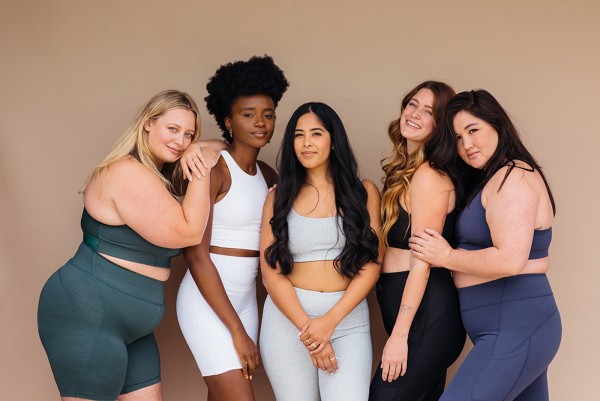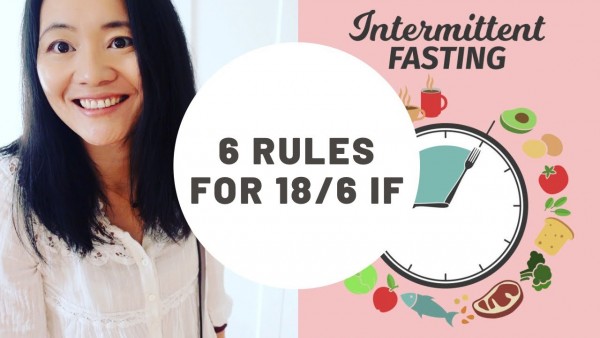Whats the Difference Between Body Positivity and Body Neutrality?
Body positivity has been a popular phrase among lifestyle influencers in recent years. But the roots of the modern body positivity movement are far older than social media, and its original mission was quite different to some of the messages you see today.
Now, the body positivity hashtag often accompanies photos of relatively thin women talking about learning to love their “flaws.” This isn’t exactly what the folks who started the body positivity movement had in mind, and the idea of body love or even body acceptance can seem completely out of reach for many. That’s where body neutrality, a much newer concept, comes in.
Instead of striving for all-out body love, the goal of body neutrality is to live your life without having strong feelings (good or bad) about your appearance.
Ultimately, both approaches (body positivity and body neutrality) are about fostering a healthy body image, defined by the American Psychological Association (APA) as the mental picture one forms of one’s body as a whole, including its physical characteristics and one’s attitudes toward these characteristics.
If you’re curious about body positivity and body neutrality, or wondering which one might be right for you, here’s more about each concept and the differences between them.
Why the Body Positivity Movement Started and What It Means Today
“Body positivity is a movement that believes all people deserve to have a positive body image,” says Brit Guerin, a licensed mental health counselor and co-owner of Current Wellness, a weight-inclusive wellness center in Raleigh, North Carolina. “This movement encourages folx to love their bodies just as they are.”
Medically Reviewed
woman posing on green background space
Both approaches to body image are healthy ones.
Tara Moore/Getty Images; Canva
Body positivity has been a popular phrase among lifestyle influencers in recent years. But the roots of the modern body positivity movement are far older than social media, and its original mission was quite different to some of the messages you see today.
Instead of striving for all-out body love, the goal of body neutrality is to live your life without having strong feelings (good or bad) about your appearance.
Ultimately, both approaches (body positivity and body neutrality) are about fostering a healthy body image, defined by the American Psychological Association (APA) as the mental picture one forms of one’s body as a whole, including its physical characteristics and one’s attitudes toward these characteristics.
It’s important because body image does significantly affect our physical and mental health. A study published in September 2016 in PLoS One found that better body image was associated with a better overall quality of life for adults and teenagers. A study published in March 2015 in the journal Body Image found that adults with a positive body image typically had better self-esteem and less depression than those with a negative body image, and were less likely to engage in unhealthy dieting behaviors.
If you’re curious about body positivity and body neutrality, or wondering which one might be right for you, here’s more about each concept and the differences between them.
https://nwsdalynew.hashnode.dev/whats-the-difference-between-body-positivity-and-body-neutrality
https://www.banditroom.site/whats-the-difference-between-body-positivity-and-body-neutrality/
https://dotnetfiddle.net/M4TWa8
https://spot.tecno.com/global/forum.php?mod=viewthread&tid=222449&extra=
https://player.soundon.fm/p/34a57d66-5927-4eb3-8cb3-a3aea9be5ec4
https://player.soundon.fm/p/9e981ce4-49df-4760-b57c-347fce759e4d
http://healingxchange.ning.com/photo/albums/si-semok
https://player.soundon.fm/p/4b030133-e216-4cad-b2c0-e5e49b882c20
https://bitbucket.org/atlassianlabs/node-jira/issues/131991/demon-slayer-kimetsu-no-yaiba-swordsmith
https://bitbucket.org/atlassianlabs/node-jira/issues/254525/demon-slayer-2023
https://bitbucket.org/atlassianlabs/node-jira/issues/132340/watch-here-demon-slayer-kimetsu-no-yaiba
https://pantip.com/topic/41900483
https://blog.umsida.ac.id/fandy/whats-the-difference-between-body-positivity-and-body-neutrality/
https://vk.com/@kame_aam-premiere-films-voir-avatar-2-la-voie-de-leau-2022-francais-g
https://vk.com/@vallen.vinolla-demon-slayer-kimetsu-no-yaiba-to-the-swordsmith-village-2
https://vk.com/@sasa_gemoii-demon-slayer-kimetsu-no-yaiba-to-the-swordsmith-village-2
https://vk.com/@dayanajanice23-demon-slayer-kimetsu-no-yaiba-to-the-swordsmith-village-20
https://articlenetwork.site/whats-the-difference-between-body-positivity-and-body-neutrality/
https://vk.com/@regina_monwolk-2022-korean
https://vk.com/@vaniamaria69-2-2022-imax-hd
https://vk.com/@mariavania96-a-guilty-conscience
https://vk.com/@mariavania96-a-guilty-conscience
Why the Body Positivity Movement Started and What It Means Today
“Body positivity is a movement that believes all people deserve to have a positive body image,” says Brit Guerin, a licensed mental health counselor and co-owner of Current Wellness, a weight-inclusive wellness center in Raleigh, North Carolina. “This movement encourages folx to love their bodies just as they are.”
But while body positivity has become personal — it’s about individuals feeling better about their own bodies — its roots are more political. Many sources trace the body positivity movement back to 1969 and the creation of the National Association to Aid Fat Americans (NAAFA), now called the National Association to Advance Fat Acceptance.
Tigress Osborn, an equity and inclusion consultant and the current chair of NAAFA, explains that the organization was started in response to the discrimination people in larger bodies face (and still face), with the goal of making the world more accessible to and accepting of people in fat bodies.
The term “body positivity” started showing up in the 1990s, Osborn says, as a way for fat activists and others in marginalized bodies — primarily Black and brown women and femmes, people who are disabled, and those who identified as + — to stand against oppressive body and beauty standards.
Now, body positivity is often associated with “the woman who weighs 15 pounds more than society thinks she’s ‘supposed’ to weigh, pinching her thigh roll, and talking about how she’s accepting herself,” Osborn says. “That’s not as radical as having a nonbinary Black or brown person who weighs 350 pounds showing their body and saying, ‘I’m going to live my best life.’”
Where Body Neutrality Comes From and What It Means Today
“Body neutrality is neither having strong feelings against or affirming your body,” says Sasha Jackson, LCSW, a therapist in private practice in Patterson, California.
How to Work Towards Body Positivity or Body Neutrality
1. Focus on What Your Body Can Do
A good first step is to focus more on what your body can do. Jackson recommends writing down three things your body does for you, like allow you to play with your kids or helping you stand as you wash the dishes. “This exercise will help you identify and build genuine gratitude,” she says.
https://techplanet.today/post/whats-the-difference-between-body-positivity-and-body-neutrality
https://www.techrum.vn/threads/whats-the-difference-between-body-positivity-and-body-neutrality.699807/
https://www.cakeresume.com/portfolios/difference-between-body-positivity
2. Reconnect With Your Senses
Then, tune into your senses as a way to further connect with your body. Identify ways in which each of your five senses helps you interact with the world. For example, my sense of touch helps me snuggle with my pet, or my sense of taste allows me to appreciate ice cream. “This exercise will help you to build appreciation and focus your attention on what your body does for you,” Jackson says.
3. Seek Help if You Need It
If you're experiencing severe body image distress, seek out a qualified therapist who can help you work through it. If you don't already work with a mental health professional, you can ask your primary-care provider to refer you to a therapist who specializes in body image, or search for local body-inclusive therapists through directories like Inclusive Therapists or the Health at Every Size Community. And no matter how you choose to approach body positivity or body neutrality, remember that changing your relationship with your body will take time.


![[¡PELISPLUS!]—Ver!! Cuevana Súper Mario Bros: La Película español [¡PELISPLUS!]—Ver!! Cuevana Súper Mario Bros: La Película español](https://congmuaban.vn/uploads/san-pham/pelisplus-ver-cuevana-super-mario-bros-la-pelicula-espaol.png)
![Super Mario Bros. le film - STREAMING Français [VF] Complet Gratuit HD Super Mario Bros. le film - STREAMING Français [VF] Complet Gratuit HD](https://congmuaban.vn/uploads/san-pham/super-mario-bros-le-film-streaming-franais-vf-complet-gratuit-hd.jpg)

















